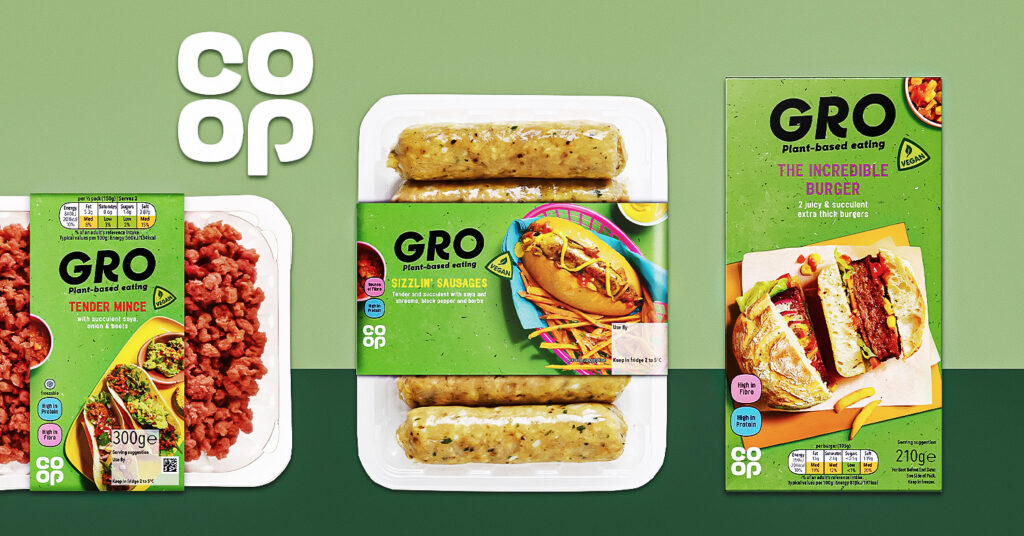Co-op’s vegan food is now cheaper than ever.
The British retail group just announced a price reduction across 29 products in GRO, its plant-based range, with up to 50 percent off some key ingredients and meals.
The Co-op said that it aims to reject the “unfair” pricing of vegan staples such as burgers and sausages in order to create a price parity with traditional animal products. It also clarified that the ingredients and quality of its vegan food will not change, and the group has invested an additional £1.7 million into its own-brand range to make the price reduction possible.
While an increasing number of Brits are interested in flexitarianism, the cost of vegan products is a concern for many. According to Jo Whitfield, the Co-op Food chief executive, eating plant-based food “shouldn’t cost you more money.”
“It’s an industry-wide standard that plant-based alternatives are usually priced higher than their meat and dairy counterparts,” said Whitfield in a press release shared with LIVEKINDLY. “This disparity is unfair to those following vegetarian, vegan and flexitarian diets.”
This price drop will see the GRO range vegan sausages fall from £3 to £1.45, while burgers will now cost just £1.35 rather than £3 – more than 50 percent off the previous price.
According to the group, these reductions could save a family who regularly eats vegan foods over £100 every year. By reducing the cost of its vegan food range, the Co-op hopes that more customers will be able to try its meat-free options
“It’s Co-op’s ambition to make our plant-based range, GRO, even more accessible to our members and customers, helping them make decisions that collectively will have an impact on the world we all share,” continued Whitfield.
The Co-op aims for ‘net-zero’ emissions by 2040
Vegan foods are often more sustainable than their animal-based counterparts. Beef and dairy, in particular rack up huge environmental footprints. This move by the Co-operative Group is part of its broader 10-point-plan for net-zero emissions by 2040.
“Emissions from our operations and our own-brand products are where we have the greatest responsibility and can make the biggest difference. This move is a step in the right direction and we encourage other retailers and brands to consider making the change too,” added Whitfield.
International chains including Starbucks, Burger King, and Nestlé are emphasizing plant-based ingredients and flexitarian options for similar reasons, in addition to catering to the demand for healthy, environmentally-friendly foods.
The Co-op launched the GRO range in January last year with 35 vegan products, following the example set by rival supermarkets Tesco, Asda, and Iceland, all three of which are also increasingly emphasizing the need for affordable plant-based food.
Is vegan food really more expensive?
While vegan food is far from accessible to everyone, it’s possible to eat a plant-based diet on a budget, and studies do show that this can save you money in the long run.
Just last year, a study commissioned by vegetarian brand Linda McCartney reported that British consumers saved £6.7 billion in 2019 by eating plant-based foods instead of animal products.
Either way, the industry is moving fast, and the European vegan market alone has grown by 49 percent over the past two years. Globally, the vegan food market is predicted to surpass $31 billion by the year 2026.


